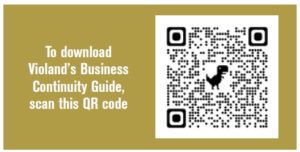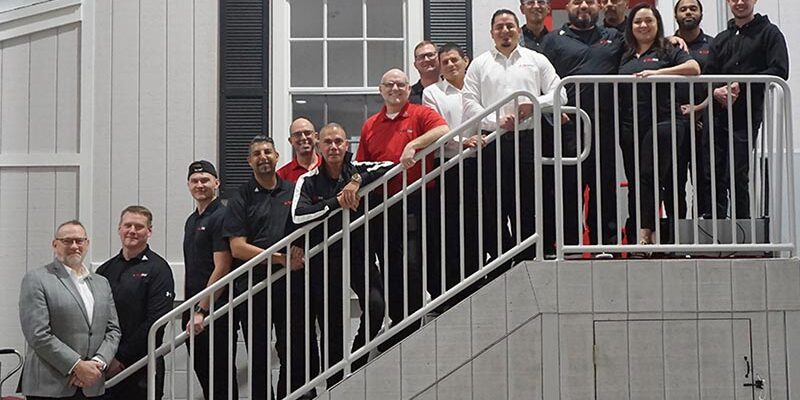Financial Performance Follows Behavior

By Chuck Violand
Any discussion about profitability or the financial performance of a small business must start with an understanding of the business owner’s personal beliefs about profits and the financial performance of their company, as the two are inextricably linked. Any attempt to change the company’s financial performance without also addressing the owner’s beliefs usually results in frustration and disappointment.
In his book Working Without a Net, change management consultant Morris R. Shechtman states: “There are no business problems—only business manifestations of personal problems.” In my three decades of working with small business owners, I have found Shechtman’s philosophy to hold true. It holds true in an owner’s beliefs about their relationships with their customers, suppliers, and workers; with the quality of the products or services they produce; with how well organized their company is; and with just about every other area of their business. Even when it comes to their company’s financial performance, I have found that business owners work out their personal beliefs about money through their business.
To illustrate this point, I could pull from my experiences with clients over the years. But instead, let’s use a recent example we’re all familiar with—one that has affected all of us to some degree: the COVID-19 pandemic. While COVID is a tragedy of global proportions and my intention is not to treat it casually, the pandemic has taught us some valuable business lessons if we are open to learning them.
Pandemic lessons
When COVID set in, we at Violand Management were frequently asked to offer our insights on how businesses could best deal with the very uncertain economic and business conditions experienced at the time. With the assistance of all the advisors at Violand, we quickly assembled our Business Continuity Guide—a set of recommendations for business owners and managers to follow to ensure the stability of their businesses.
While some of our suggestions in the Guide addressed issues specific to the economic disruption experienced at the time, many of them were reminders of things business owners should have been doing all along. With respect to business finance, these included the need to track and collect accounts receivable, increase the frequency of invoicing, collect cash, monitor the profitability of jobs, and have contingency plans in place for significant drops in revenue.
Establish a savings safety net
In a short time, one of the things many business owners realized was the pandemic revealed existing weaknesses in their business as much as it created new ones. Obviously, if you’re in a cleaning, disaster restoration, or building service contractor business, you had to adjust to lack of access to your customers’ homes or businesses. This was catastrophic for some companies as they experienced immediate and sharp drops in revenue. And it took quite a while before some customers were comfortable having workers back in their surroundings. Regrettably, some businesses never recovered, although most have rebounded well. Many other business owners found themselves exhausting what little savings they had prior to COVID in an attempt to survive.
Having insufficient savings to withstand a downturn in business is a mindset more than it is a factor of outside conditions. We convince ourselves we’ll never need much of a cushion, or we never establish the discipline to build that cushion, and decide it’s better to just enjoy the money while we are making it.
Diversify your customers
In some cases, the pandemic also revealed what can happen when we have an unhealthy dependence on one customer. During flush times (and keep in mind that for most businesses, times were pretty flush pre-COVID), it was easy to dismiss the risk of an overdependence because the money came so effortlessly or maybe because we had gotten too comfortable or too casual about marketing to find additional customers. In the cleaning industry, we saw this with companies that had become reliant on one or two large contracts. In the restoration industry, we saw it with companies that had an excessive reliance on program work—especially if it was from any one program. Things seemed to be fine, right up until that one customer experienced financial difficulties of their own or decided to “go another direction” or until the contractor got cut off by the program. Or until COVID hit and some business owners found themselves without enough revenue to support their company or lifestyle.
Anyone who has heard me talk about business numbers has heard me state that when one customer represents more than 20% of a company’s overall revenue, they are a threat to that company. This doesn’t mean they’re a bad customer or that you should stop doing business with them. Quite the contrary! You should pamper them… and then get busy finding more of the same type of customer so that not one of them represents more than 20% of your sales.
Prioritize profitability
Some owners had gotten soft with tracking the profitability of their jobs or even the profitability of their company. Others had rationalized their unprofitability, thinking they had other customers who could offset the poor performance. They would write it off as a “marketing expense” or convince themselves that they would make up for the loss in volume. When the economic seas got rough, these business owners quickly felt the bite of customers they relied on too heavily and many discovered the impact that doing so was having on their business.
During the height of the pandemic, our advice to clients remained the same as what we have always given—run your business with discipline all the time, in good times and in bad. This way, when tough times arrive (and they will always arrive at some point), you’re prepared. But this requires developing the business discipline and the mental toughness to avoid financial distractions; the type of discipline that will lead to the right decisions, that lead to the right actions, that produce the desired financial performance.
Discipline your financial mindset
Here’s the good news: Growing the mental toughness, developing the business acumen, or establishing the discipline necessary to run a highly profitable company is a learned skill. Most of us aren’t born with it, and anyone can learn it. It has little to do with your IQ, education, gender, or genes. It has everything to do with the thinking you bring to your business. We sometimes must reprogram our beliefs about money and profits. The starting point is for business owners to recognize the direct link that exists between their company’s financial performance and the thinking they bring to the decisions and actions that lead to that performance.
Another lesson a lot of business owners learned in recent years was just how gritty and resilient they are. Many of them returned to the fundamentals that first led to their success. They rediscovered the value of customer service, how to produce jobs more profitably, and the importance of tracking their company’s financial performance.
Even if we feel that business numbers aren’t our strength, that doesn’t mean they’re not important. They are important and being soft on them comes at a cost. Circumstances will remind us of this when times get tough. We need to continually remind ourselves of it when times are flush.
My advice as we enter this next era of abundance, where we have more work than we have people to produce it, is to never lose your grit—ever. Resist the urge to get soft on hard decisions just because you can. Enjoy the easy times but be prepared for the unexpected. Stay vigilant against the siren song of complacency.
Chuck Violand is the founder and principal of Violand Management Associates (VMA), a highly-respected consulting company in the restoration and cleaning industries. Through VMA, he works with business owners and companies to develop their people and their profits. For more information, visit www.violand.com.














